You’ve been dairy-free since watching the Cowspiracy documentary and have sworn the steaks on this summer’s barbeque are going to be strictly cauliflower. But what about your clothes? The fashion industry is the second largest polluter after oil, after all. That means, short of wearing your birthday suit 24/7, your next challenge now is to make your wardrobe as sustainable as possible. That’s where the high street comes in. Log onto Arket’s website, pop into a Lindex store or browse the shoe selection at M&S and you can’t miss it. The S-word is very much on the high street’s agenda.
Fashion Revolution’s Fashion Transparency Index– launched as a response to the Rana Plaza factory collapse six years ago – ranked 200 of the world’s biggest fashion brands and retailers according to how much they disclose about their social and environmental policies, practices and impact. For 2019, high street behemoths such as Gap, H&M and M&S all fell within the 51-61 per cent bracket. What this means is that these brands are providing detailed supplier lists, which include information on manufacturers as well as processing facilities, and are among the best at making their future goals public. According to H&M’s most recent sustainability report, 95 per cent of cotton used is either recycled or sustainably sourced. It also has targets for continuing to reduce its greenhouse gas emissions by 2030, and what it’s calling a “Water Roadmap” for its supply chain up to 2022.
Lindex, too, launched a sustainability initiative this year called Your Smart Wardrobe. Pia Ekholm, the brand’s design and buying manager for womenswear explains: “We want to help our customer build a wardrobe that consists of great essentials that she’ll wear for seasons to come.” How this works in practice is that the shop assistants and personal shopping team are helping customers think about longevity. Impulse buying is out and mindfulness is in. “We guide her to buy things that she really needs,” says Eckholm. “Is there anything missing in her wardrobe? Does she need something for a specific occasion? What does she already have in her wardrobe that will go with it? These are all to avoid the ‘wrong purchases’ and to give multiple styling tips so that the garment she ends up buying can be used in lots of different ways.”
Arket, meanwhile, has made waves this summer with its sustainable swimwear. Its capsule of cossies and trunks made from reused and recycled nylon – including recovered fishing nets, discarded plastics and old carpets – launched back in April, with prices starting from £35 for a swimsuit.
The brand also introduced a new initiative called ‘Recycle with Arket’. Similar to its sister store & Other Stories, customers can now bring their used clothes and textiles to any Arket in exchange for a 10 per cent discount on their next purchase, not to mention the knowledge that their unwanted clothes will find a new home in the ‘loop’.
As well as recycling old materials, there are plenty of high street brands investing in innovative new ones. Topshop has its PETA-approved vegan shoe collection, which is handmade in Spain and completely free from animal products. New Look launched its own vegan range at the beginning of August and M&S introduced vegan footwear earlier this year due to customer demand. “We noticed an increased interest in veganism with a rise of over 200 per cent in online searches for related products,” said a spokesperson for M&S. “We worked closely with our footwear designers to set up strict processes to ensure our synthetic products could be labelled ‘vegan-friendly’.”
The fact that shoppers are concerned about being sustainable and making more ethical choices is encouraging – and is something that brands are experiencing across the high street. ASOS now has a denim collection made from 100 per cent sustainable cotton sourced through Cotton Made in Africa and the Better Cotton Initiative. “The customer response has been amazing, especially on social media,” says ASOS buyer Suzy Binns. “Our customers do care. They want to know more about what we’re doing to source responsibly and reduce our carbon footprint.” The response has been so positive that ASOS aims to get to 100 per cent sustainably sourced cotton by 2025, although the jeans range will already reach this target by autumn this year. While there may still be a long way to go, it seems the high street is certainly making strides in the right direction.
SHOP: 7 Of The Best Sustainable High Street Buys
Best Sustainable High Street Buys
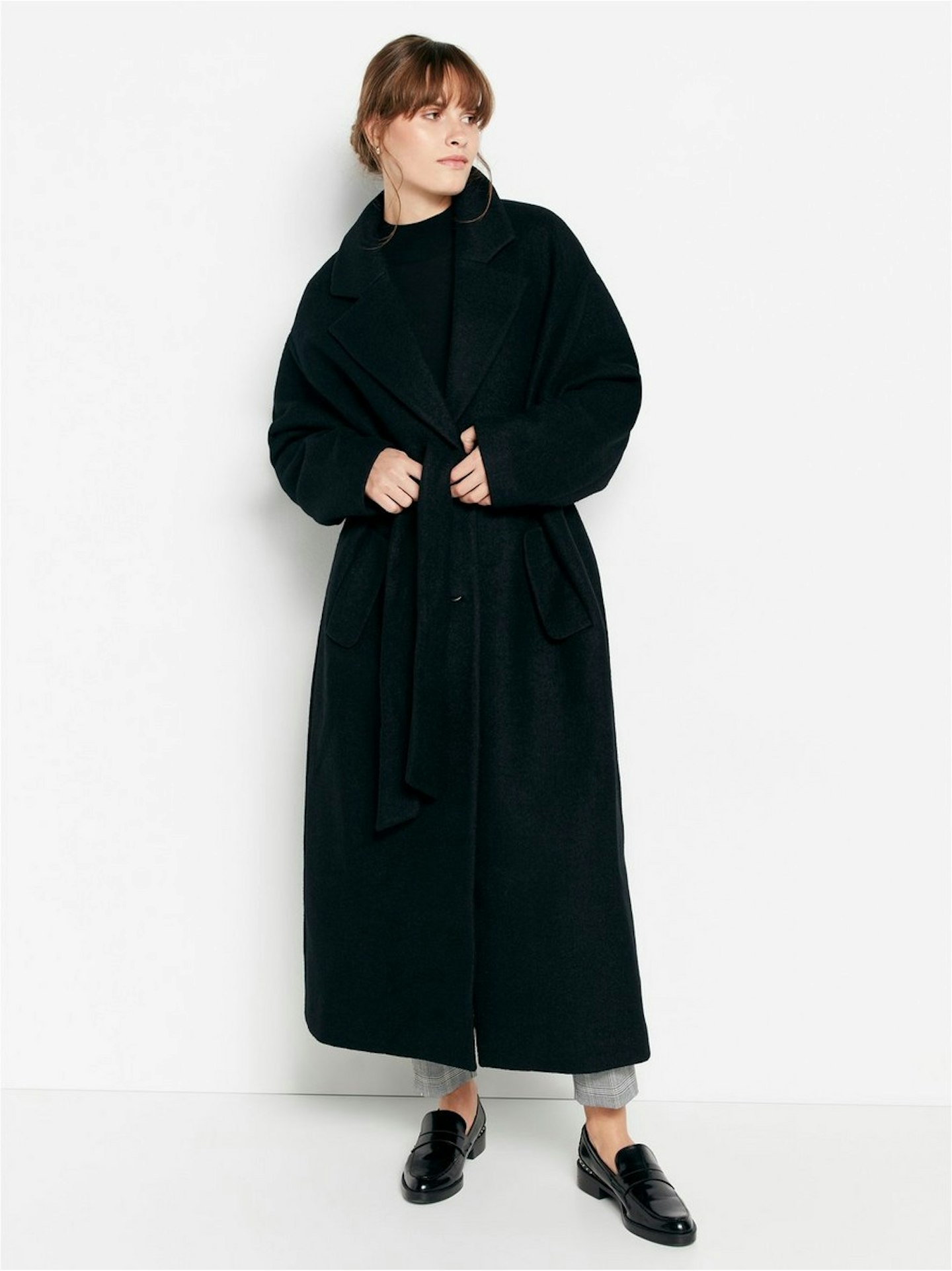 1 of 7
1 of 7Lindex, Black Coat With Tie Belt, £99.99
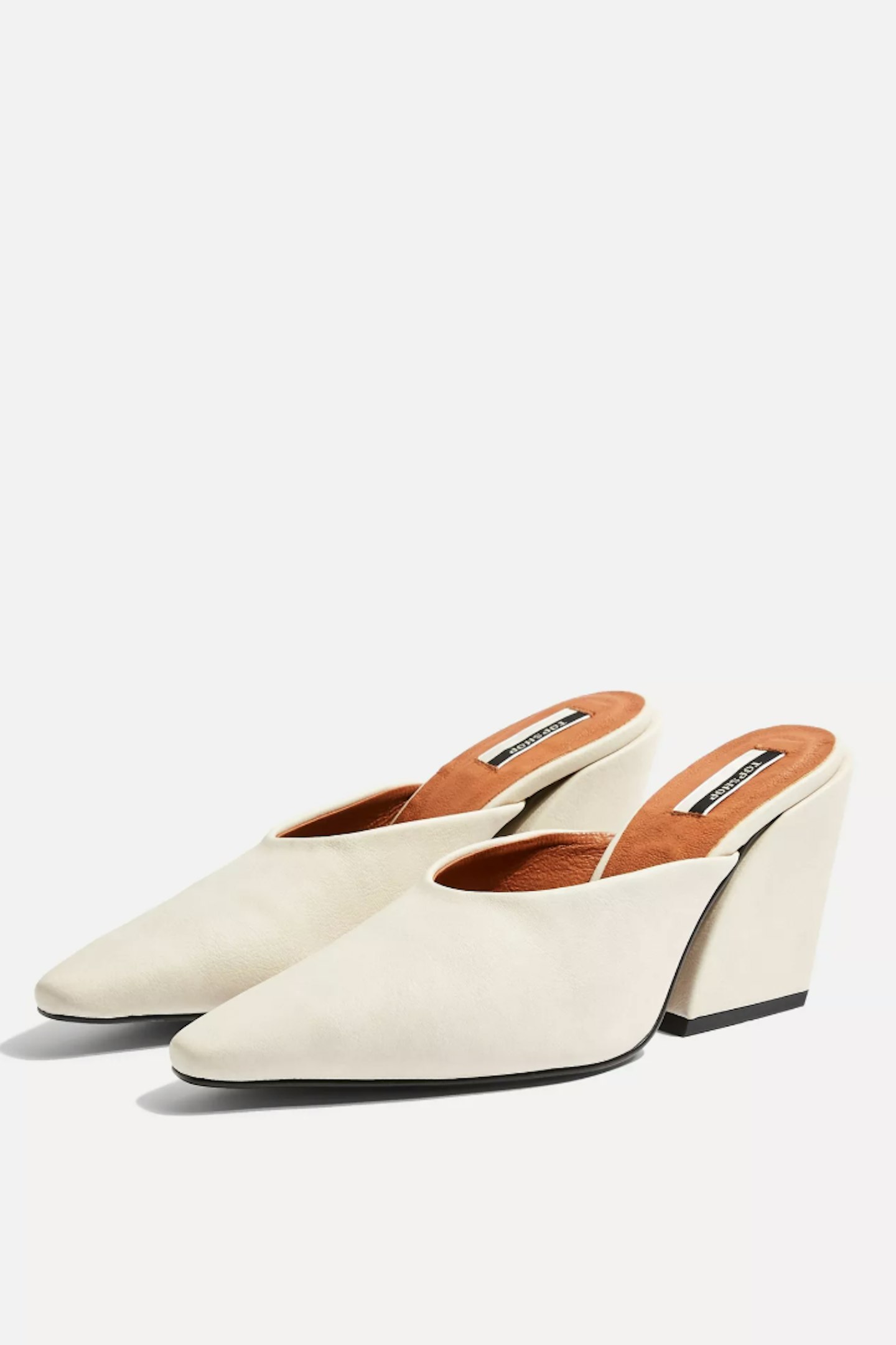 2 of 7
2 of 7Topshop, Vegan Stone Mules, £59
 3 of 7
3 of 7Arket, Swimsuit, £35
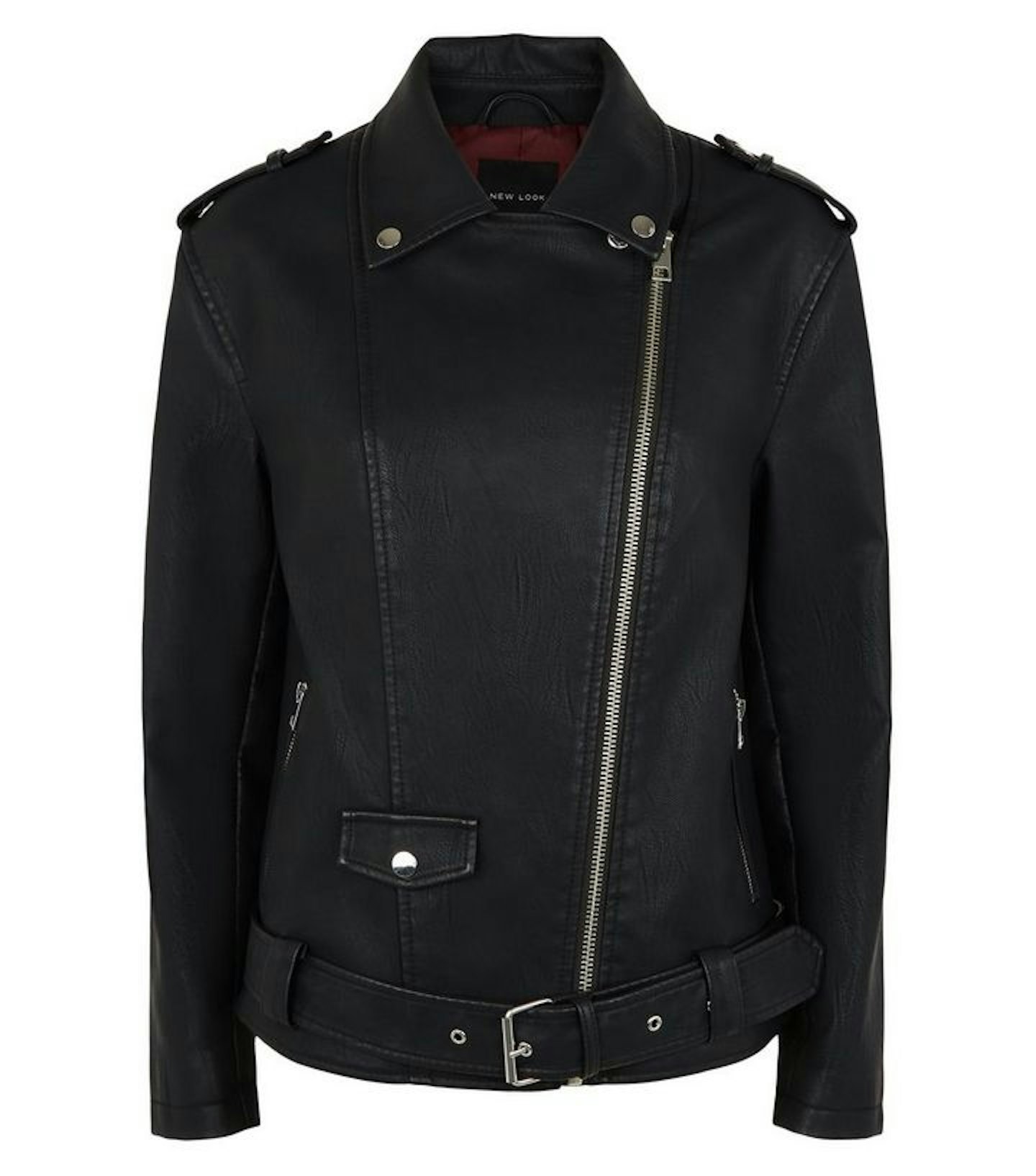 4 of 7
4 of 7New Look, Black Vegan Leather Jacket, £39.99
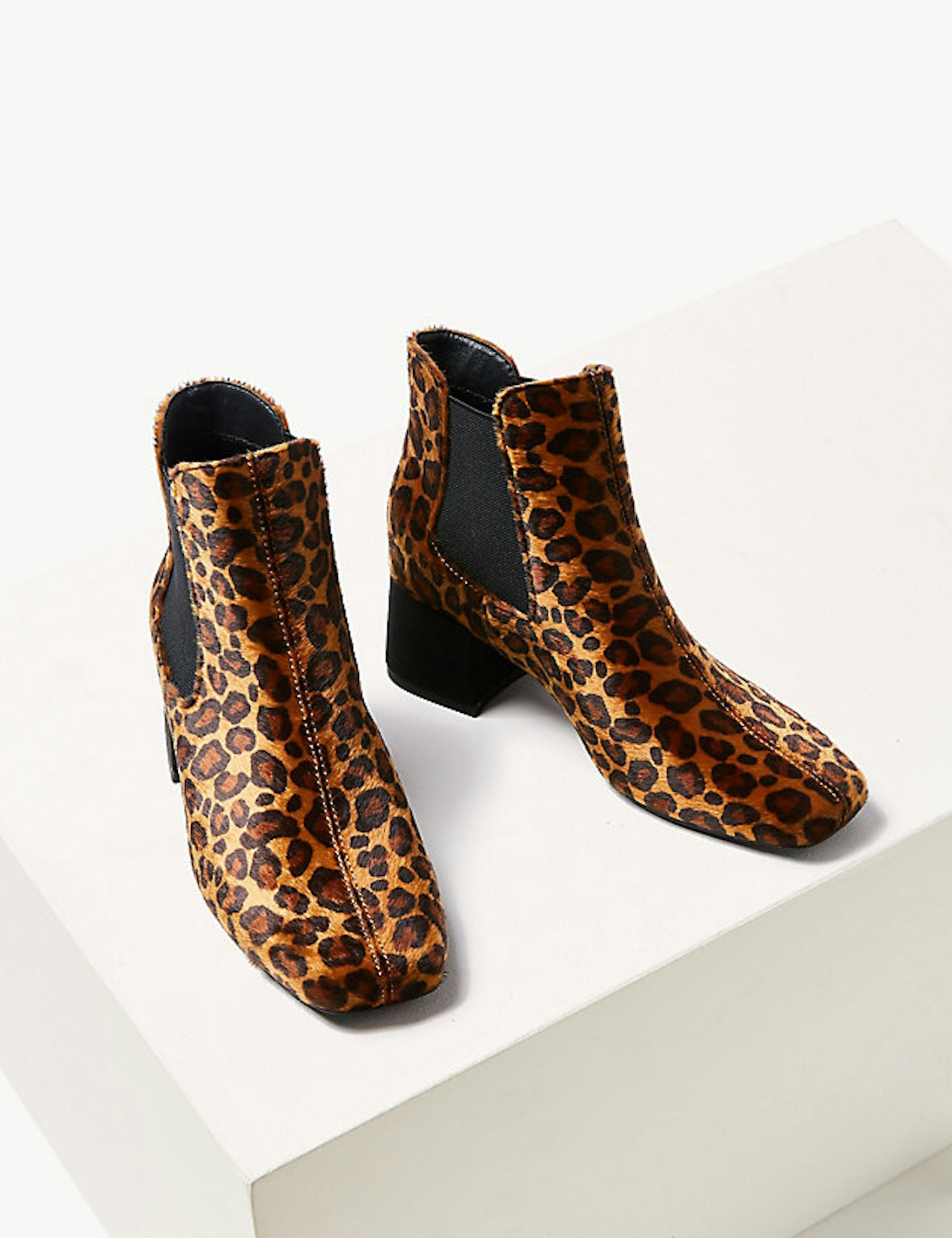 5 of 7
5 of 7Marks & Spencer, Leopard Print Vegan Boots, £35
 6 of 7
6 of 7H&M Conscious, Knitted Jumper, £24.99
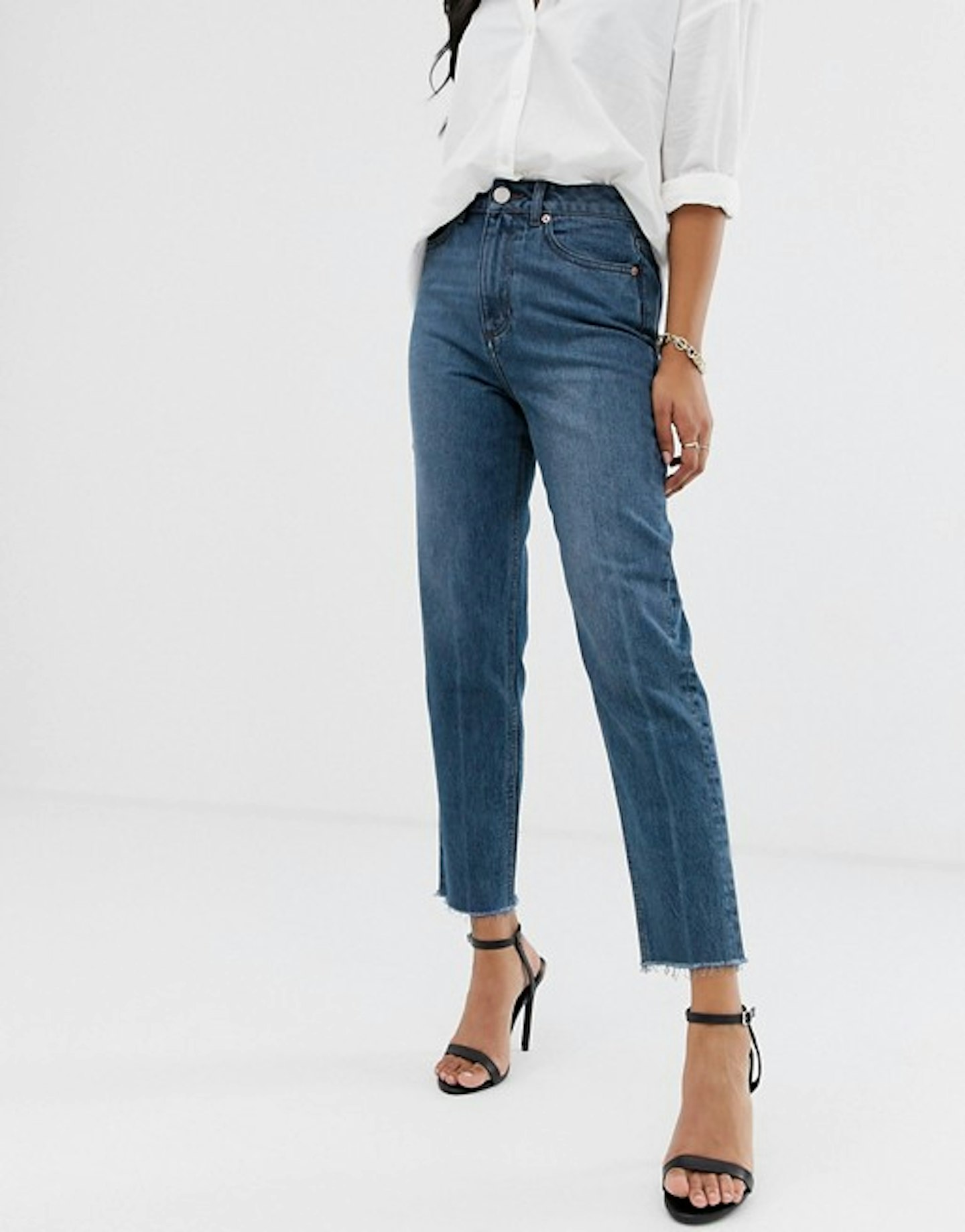 7 of 7
7 of 7